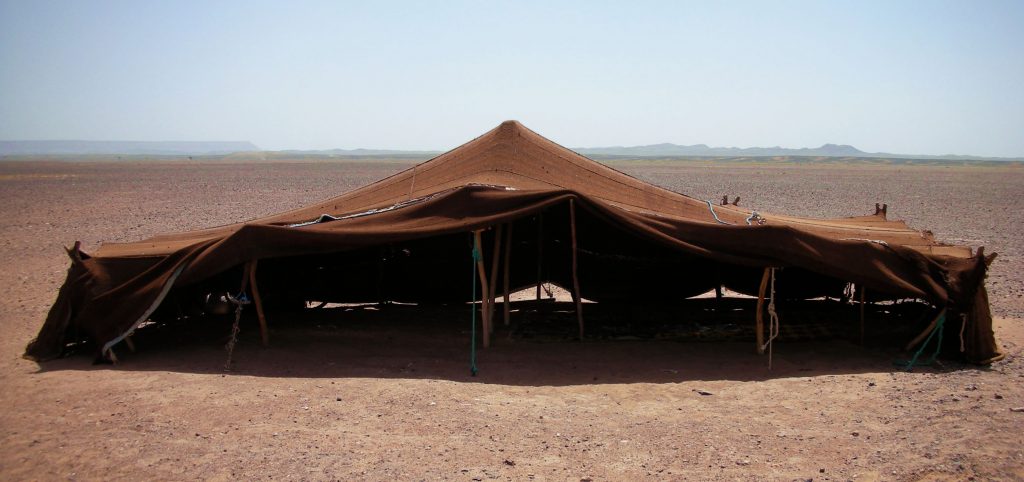
(3-4 Minute Read)
Genesis 25:19 – 28:9
Toledot as a Torah portion recounts the generations of Isaac, who was 40 years old when he married Rebekah. His wife was barren, and Isaac pleaded with the Almighty on her behalf. Rebekah then became pregnant with struggling twins. The Eternal One explained to her, “Two nations are in your womb; the older shall serve the younger.”
At birth, Esau emerged first, red and hairy. Jacob came next, clutching his brother’s heel. Isaac was now 60 years old.
Later, Esau became a hunter, but Jacob was a mild man who preferred to stay in the tents. Isaac favored Esau because he enjoyed eating meat, but Rebekah favored Jacob.
Jacob was cooking a red lentil stew when Esau returned from the field. Very hungry, Esau requested some of the red stew (which is why Esau was also called ‘Edom’, or ‘Red’). Jacob only agreed on the condition that Esau swear to sell him his birthright. Esau conceded and spurned his birthright.

There was an additional famine in the land. The Almighty “appeared” to Isaac and instructed him not to go down to Egypt; he was to remain in this land. The Most High reiterated the promise that his descendants would be as numerous as the stars and inherit the land.
Isaac went to Abimelech, king of the Philistines in Gerar. Out of fear, Isaac falsely claimed that his wife, Rebekah, was his sister. Later, Abimelech peered through a window and saw Isaac “playing” with his wife. The king of the Philistines criticized Isaac but ensured their safety.
Isaac was blessed by the Eternal One and became very prosperous with his harvests and herds. The Philistines became envious and stopped up the wells dug by Abraham’s servants. Abimelech sent Isaac away because his household and wealth became too large for them.
Isaac departed and encamped at the wadi of Gerar and redug new wells which had originally belonged to his father, Abraham. The herdsmen of Gerar quarreled, claiming that the water was theirs. And so it happened again with another well. He moved again and dug yet another well. In this case there was no contention, and Isaac named the well ‘Rehoboth.’
From there Isaac went up to Beer Sheva. The Most High “appeared” to him and further promised him and his offspring blessing for the sake of Abraham. Isaac built an altar there and invoked the Almighty by name. Isaac encamped there, and his servants also dug a well.
Abimelech and his officers approached Isaac. Isaac first complained about their previous hostility, but Abimelech sought to make a treaty between them. After sharing a feast together, they exchanged oaths.

At the age of 40, Esau married two Hittite women. They were a source of bitterness to his parents, Isaac and Rebekah.
Isaac was old and unable to see properly. He called Esau and asked him to hunt and prepare meat for him. Being elderly, Isaac wished to bless Esau before he died.
Rebekah overheard the conversation and persuaded Jacob to deceive his father. She would prepare meat from their own flocks and Jacob would serve it to his father under the guise of his brother. Jacob protested, pointing out that Esau was hairy and he was smooth skinned. Rebekah clothed Jacob with Esau’s garments and covered his bare arms and neck with animal skins.
Jacob came to Isaac in disguise and claimed to be Esau; he insisted that he had returned quickly from the hunt because the Almighty had blessed him with success. Isaac felt the animal skins on Jacob’s arms and mistook them for Esau’s hairiness. Isaac ate his son’s meat and drank wine. He smelled his clothes and blessed Jacob, believing him to be Esau. He said, “May the Most High give you abundance. Nations will serve you, and you will be the master over your brothers. Cursed be they who curse you; blessed be they who bless you.”
As soon as Jacob left, Esau returned from his hunt. Esau brought meat to his father and demanded his blessing. Isaac asked who he was. Esau confirmed his identity, and Isaac trembled violently as he informed him that he had already blessed his brother permanently. Esau wept until his father had given him an inferior blessing of his own.
Rebekah heard that Esau was plotting to kill Jacob. She instructed Jacob to travel to her father’s household in Haran. Rebekah then urged Isaac that Jacob should not marry any of the unrighteous local women.
Isaac sent for Jacob and blessed him, instructing him not to take a wife from among the local Canaanite women. Instead, he was to travel back to Haran to the household of Rebekah’s family to find a wife. Seeing how much the Canaanite women displeased his father, Esau married a daughter of Ishmael.
One interesting aspect of Toledot relates to the role that the women play in the story. While in one sense the primary actors were male, the women were the all-important provosts in the account. First, we read in Bereishit (Genesis) 26:34 that Esau married two Hittite (i.e. Canaanite) women, and they were “a source of bitterness to Isaac and Rebekah.”
This is the context that the Torah provides us immediately before recounting how Rebekah persuaded Jacob to deceptively steal his brother’s blessing. Apparently Rebekah felt that Jacob should have been the recipient of the blessing, but she did not think that Isaac would necessarily agree with that assessment. So she and Jacob used underhanded means instead.

However, we read in Bereishit (Genesis) 28:1 that “Isaac sent for Jacob and blessed him,” instructing him to travel to Rebekah’s family in Haran to find a wife. It is vital to note that Isaac now knowingly and voluntarily blessed Jacob after he became aware of his son’s theft and deception. Why would Isaac give Jacob another additional blessing after he had already stolen the previous blessing from his brother?
We see in the text that Rebekah influenced her husband despite the debacle of the blessing theft due to the despicable nature of Esau’s unrighteous Hittite wives. The implication is that Rebekah now made the argument that Esau could not be blessed because he had chosen to marry women completely unworthy to be the matriarchs of the Jewish people. The Almighty had repeatedly reiterated to Isaac His promise to Abraham (and now to Isaac as well) that their descendants would be prosperous, successful, and as numerous as the stars. However, reading between the lines we can infer that Rebekah convinced Isaac that Esau could not be the recipient of this blessing, since Jacob and Esau by default would be required to find righteous women to participate in and perpetuate this blessing. And Esau, thus far, had essentially disqualified himself.
Accordingly, this idea is substantiated in Bereishit (Genesis) 28:6-9. The Torah informs us that Esau realized how odious his local wives were to his parents. So he instead married a daughter of Ishmael. In other words, it seems that Esau finally understood that if he wanted to be part of the Most High’s promised blessings, he would need to join himself with a woman who would also partake in those blessings. However, he chose to marry a daughter of Ishmael. It is true that Ishmael was a son of Abraham and also destined to be a great nation. But the Eternal One confirmed that Ishmael was not the son relating to the promised blessings. Thus, although marrying the daughter of Ishmael was presumably better than the pagan Canaanite women, Esau still failed to build a family worthy of the transmission of the blessings of the Jewish people.
In this context, we can better understand why the deception and theft of Jacob was seemingly rewarded. Perhaps, in reality, the issue at hand was that the true merit of Jacob was that he was willing to marry the right woman (or women, in his case). In light of this angle, the deception and theft was actually completely unnecessary. By failing to understand that the most basic component of the Jewish people was the building of a home based on connecting with the Almighty, Esau disqualified himself from the onset to be the progenitor of the Jewish people. Jacob, in contrast, was so dedicated to building a proper Jewish home that he fled with nothing more than the clothes on his back and made his way to Haran. In other words, the Most High didn’t bless Jacob because he had stolen his brother’s blessing; rather, He blessed Jacob in spite of it. Since Esau had disqualified himself by marrying unworthy pagan women, Jacob was the only “candidate” left, especially as he fought against challenge and hardship to achieve this goal of building a proper Jewish family.
If we examine Toledot from this perspective, we see that Jacob’s deception and theft of his brother’s blessing was presumably both unnecessary and improper. And Jacob suffered greatly because of it. Because of this deceptive theft, Laban had an unprecedented edge over Jacob to make him suffer. And Rebekah died before Jacob returned to the land of Canaan, meaning that he never saw his mother alive ever again. One can only wonder if Rebekah and Jacob had approached Isaac properly would the catastrophic family drama could have been avoided altogether, and could Jacob have received the same blessings without using underhanded means to do so?
May the Holy One, Blessed be He, grant us to always find the “high road” of conduct in every situation, even when doing so is not necessarily a guarantee of success. And may He enable us all to build and maintain proper Jewish homes in order to perpetuate the blessings of Abraham and Isaac into our own lives and into all future Jewish generations.


